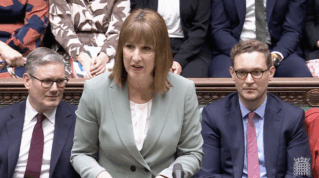While plans for the Advanced British Standard (ABS) are now well and truly sunk, what lessons can the new government learn from the experience?
It was halfway through a session with the DfE on the ABS when it clicked for us round the table. We totted up all the different elements of the qualification and someone said: “Hold on, isn’t this just three A levels plus English and maths?”
After a slightly awkward pause, everyone agreed it was.
The problem, it appeared to us, was that the department was trying to recreate something that structurally wasn’t actually flawed. Or at least, the structure wasn’t the main thing that needed resolving.
The main issue the department was really trying to sort out was so-called ‘parity of esteem’, as well as a sense that not enough young people were learning the sort of English and maths they need for working life.
If we break this down, the first thing is less about the structure of qualifications, and much more about their brand and perception. The reason we don’t like talking about ‘parity of esteem’ at AQA is it isn’t really something you can fix in a qualification itself; it’s in the eye of the beholder.
And this isn’t an isolated issue. On T levels, there was something in there about needing to raise the quality of vocational qualifications, but at its heart (and I was in the DfE when it was conceived) T levels were always about brand. The idea was to create ‘parity of esteem‘ by creating a vocational qualification whose brand was as strong as that of A levels, hence the name.
The problem with this is: it misunderstands the problem and therefore misapplies the solution. The problem isn’t really the qualification itself; the problem is the perception of that qualification.
This comes from what policy officials see as their default set of tools to solve policy problems; too often, structural change is the first thing officials and ministers consider. The softer side – how to influence and create genuine behaviour change – is more rarely looked to as a solution.
That’s why you end up with a brand new, totally redesigned qualification that still hasn’t changed the parity of anything.
Too often, structural change is the first thing officials and ministers consider
What if this wasn’t the default approach? What if we treated qualification reform like other challenges in public policy that require a behavioural solution, such as teenage pregnancy or smoking?
Under this model, the structure of qualifications would be tweaked and improved, but far more effort would go into influencing people’s perception of the qualification and what young people know and can do if they have it.
Research would be undertaken to understand why, for example, middle-class parents like apprenticeships, but only for other people’s kids. Deeply ingrained social norms would be understood, and language would be tested to see what could start to challenge those norms, including the sorts of techniques made famous by the ‘nudge unit’ (Behavioural Insights Team).
This would see the department think differently; instead of spending time and money constantly restructuring things, it would first ask itself whether it could play more of a ‘system stewardship’ role. It would set out to shape behaviour more softly, with some tweaks in accountability to guide choice if necessary.
This would have the added benefit of costing less money, as well as creating less change fatigue in the sector – something teachers and lecturers tell us constantly is a major concern.
And what about the second challenge I mentioned at the start, around maths and English for life? Well, at AQA we have tried to take our own advice. Instead of waiting for a major restructure of post-16 qualifications, we have begun creating an on-demand, when-ready assessment, akin to a driving test.
This will help students certify that they have the numeracy skills they need to go on to further study or work. And we will be doing the same thing for literacy and digital fluency.
For a Labour government lacking in cash and keen to make an impact quickly, we need new and fresh approaches if we want to deliver improved outcomes for our young people.
Hopefully, some of these ideas are the start of a conversation to do just that.

















What might help towards a more effective and efficient system would be to fix the currently one dimensional approach to assessing progression.
The sector and policymakers are obsessed about measuring progression ‘to’ something and don’t seem to have realised that measuring progression ‘from’ can be crucial in determining the most efficacious route.
As for the now non-publicly controlled nudge unit, they are laughing. They can be paid to apply their techniques by gov departments to help ‘nudge’ behaviour towards certain outcomes and paid by others to de-rail those projects. Double the income for 50% achievement and no accountability.